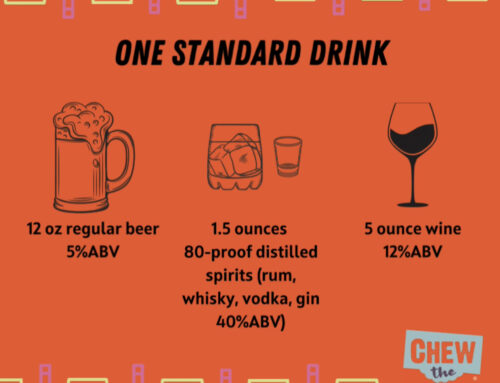I had to the opportunity to meet with some of my state district’s legislators recently to share some insights about the future of my profession. The Center for Medicare and Medicaid Services (CMS) recently passed a bill that excluded registered dietitians and psychologists from providing intensive nutrition therapy for obesity to patients. Instead, the primary care provider is the only person able to bill for such services. Pennsylvania is currently trying to secure a Practice Act that ensures that Medical Nutrition Therapy is provided by a qualified nutrition professional, that is the registered dietitian.
As the Fox, from the movie The Fantastic Mr. Fox would say: “It’s a clustercuss.”  As it stands now, most people who are interested in seeing, or need to see, a dietitian do not do so because they eventually realize that there is an out of pocket expense. Insurance companies who do cover some dietitian visits, often only cover those with diabetes or kidney disease. Healthy people aren’t covered, even if they are at risk for future disease; that is, most insurers do not truly invest in prevention. We’ve come a long way with some prevention measures, but it’s time that nutrition therapy be part of a yearly disease prevention program.
As it stands now, most people who are interested in seeing, or need to see, a dietitian do not do so because they eventually realize that there is an out of pocket expense. Insurance companies who do cover some dietitian visits, often only cover those with diabetes or kidney disease. Healthy people aren’t covered, even if they are at risk for future disease; that is, most insurers do not truly invest in prevention. We’ve come a long way with some prevention measures, but it’s time that nutrition therapy be part of a yearly disease prevention program.
RDs work in many different practice settings, but those who work in clinical settings generally cannot bill insurance directly in an easy manner. It makes obvious sense to include billing for the services of a registered dietitian, who is part of the health care team, within an inpatient or outpatient medical center setting. RDs are trained by accredited universities, have a minimum of a bachelor’s degree, and are provided specific supervised practice experiences that include a variety of clinical settings. There is no other credentialed nutrition practitioner that is more suited, nor more available, for this role. The Center for Medicare and Medicaid Services seems to be the only one who doesn’t realize this.
Without insurance billing, clients simply do not follow through with nutrition education, period. Primary care providers have been given the role to provide the intensive nutrition therapy to their patients. Most do not have the time, the skills, nor desire to do so; so you only end up with advice such as, “lose weight”, or “eat less saturated fat”, from your doctor. These simplistic messages do not help people change behaviors.
I’m not hopeful that it’s going to get any better, because the battle being brought on by The Alliance for Natural Health (ANH) and other lobbying groups will interfere with most people’s ability to receive the health education they need. ANH has an agenda to prevent qualified health professionals from forming what they call a “monopoly”. They have recently been spearheading a huge campaign against the Academy of Nutrition and Dietetics (formerly the American Dietetic Association), to which I am a member.
Why? They believe that my organization is a threat and is trying to monopolize the delivery of medical nutrition therapy. They claim that there are many Master’s Degree and PhD Nutritionists and Naturopathic Doctors (NDs) who are just as qualified, and that “most RDs” don’t have advanced degrees (when in fact at least 50% do). The problem with this assumption, is that the master’s degree or PhD nutritionists or the Certified Clinical Nutritionist (CCN), are not a concern to most RDs, but rather it’s the undereducated self-proclaimed “nutritionists” who are vying for the privilege to practice nutrition without a license. We are also collectively concerned about the status of billing for medical nutrition therapy (MNT) – something RDs are specifically educated and trained to do.
The ANH blogs and website clearly give the misconception that the Academy is “against” these educated professionals, when in fact this is completely not the case. ANH also accuses those choosing the RD profession to have no knowledge of holistic approaches. Our profession has a broad scope of practice that encompasses both food and nutrition, but also includes a potential to specialize in complementary therapies, as well as many other specialties.
As a group, I believe RDs are concerned with the potential harm that can be done when consumers follow fad diets or implement radical methods recommended to them, by unqualified nutritionists, to treat or “cure” disease (Not to mention when consumers are provided with blatant misinformation). Many times these methods are not at all science-based. The aforementioned professionals (MS, PhD, CCN, ND) have education in the area of nutrition (some more than others perhaps), but others may not.
The Academy of Nutrition and Dietetics has standards in terms of educational curriculum, professional training, and continuing education. To become and RD one must pass a registration exam. These methods ensure consistency within the profession and a standard minimum requirement for competency. It’s important to have these types of standards. Would you want to be treated medically by someone who has not met at least a certain standard criteria for minimum competency?
A few months ago Forbes published an article about this issue that misrepresented the Academy of Nutrition and Dietetics, and registered dietitians in general. The Academy responded, but not to the Forbes’ author’s liking.
“In fact, there is not a single dietetics licensure law in the country that would prohibit licensed chiropractors, pharmacists, nurses, personal trainers, or acupuncturists from providing nutritional counseling. The Academy supports both member and non-member PhD nutritionists’ work.”
I know a lot of registered dietitians in all parts of the country. Most that I know simply want to provide help and support to the public and their clients. As a whole, we are a caring, thoughtful group. We don’t spend time thinking up ways to make another profession look bad. We aren’t threatened by the recent onslaught of attacks on our organization and profession, but rather baffled as to who’s behind them and why so many others want to practice nutrition without any credential. It certainly isn’t to protect the public and to ensure that appropriate nutrition counseling and therapy take place.
Be careful what you wish for. A world in which myth becomes fact, and science is thrown out the window in favor of simple observation or anecdotal evidence, is not one you really want to live in. At least I know that I don’t.
Here is the Academy’s response to the ridiculous Forbes post: Academy Response to Forbes





Rosanne,
You say that “the master’s degree or PhD nutritionists or the Certified Clinical Nutritionist (CCN), are not a concern to most RDs.” So why is the AND spending our membership dues to lobby for legislation that would limit the practice of nutrition to RDs. Why not lobby instead for licensing laws like the ones here in my state of Maryland, which strictly limit the use of the term “nutritionist” and the practice of nutrition therapy to RDs *or* others who can demonstrate equivalent education, training, and experience and who demonstrate their competency by passing a licensing exam. Our regulations effectively protect consumers from unqualified practitioners without limiting consumer choice–or the ability of qualified (non-RD) nutrition professionals from practicing their profession.
When the ANH argues that most RDs don’t have advanced degrees, I think they are making a tactical error as well as factual one. Instead of getting into a pissing match over whose constituents are more qualified, don’t you think the AND and ANH should be working together to strengthen and standardize licensing laws nationwide?
Hi Monica. Thanks for your comment. You make a good point in regard to the Academy of Nutrition and Dietetics working WITH other groups to come up with the best options. Legislators think this is a good idea as well.
RE: licensure, every state varies. In Pennsylvania we have a licensure law that simply protects the term “registered dietitian”, and that’s it. “Nutritionist” is fair game for anyone to practice under.
My concern is not with professionals like you (who have a master’s degree and certifications in nutrition, and vast experience) but in preventing blatant nutrition misinformation from being routinely disseminated to the public from unqualified people who just happen to be interested in nutrition. The Academy, to my knowledge, is not lobbying against qualified, educated nutritionists, nor is it attempting to limit nutrition practice to only RDs. But certainly the RD should be included and acknowledged as a qualified nutrition professional to deliver care when legislation involving nutrition-related diseases and disorders is being proposed.
Actually, they ARE in fact lobbying in various states for laws that would limit nutrition practice to RDs. Instead, I think we should be working together to get states like PA and CA to protect use of the term nutritionist and practice of nutrition by licensure…but there’s no reason that licensure can’t include RDs as well as other qualified nutrition professionals. (Sounds like we agree on that.)